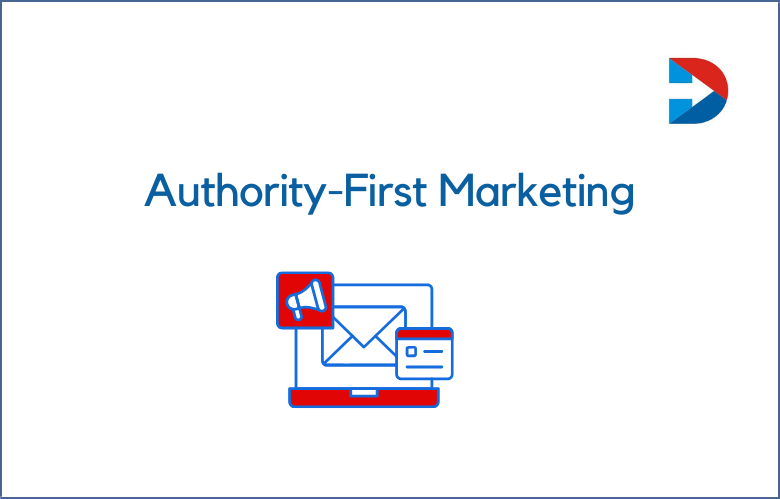
Corporate reputation management is vital to the success of any business in today’s digital world. Online reviews, social media, and news articles can quickly tarnish a business’s image and reputation. But, with proper reputation management, companies can protect their image and enhance their reputation.
We’ll explore the importance of corporate reputation management and how to protect your business image from negative press, online criticism, and other harmful factors.
Many entrepreneurs focus exclusively on generating revenue and increasing profits when running a business. While these are vital to business growth, they’re not the only considerations business owners must make. One area that is often overlooked is corporate reputation management.
Corporate reputation or brand is how businesses are perceived by customers, employees, investors, and the public. A brand’s reputation can distinguish between a profitable company and a failing one. In this post, we’ll take a closer look at corporate reputation management and explore why it’s essential for businesses of all sizes.
Corporate Reputation Management: A Comprehensive Guide
Corporate reputation management is crucial in modern business, where a company’s image can impact its bottom line. This guide will help you understand what it entails and how to implement effective strategies.
Introduction
The reputation of a corporation is an essential asset that influences its success. It determines how customers, employees, and stakeholders perceive the company. In today’s digital age, managing corporate reputation has become more complex due to the influence of social media and online reviews. Hence, businesses need to invest in corporate reputation management.
Understanding Corporate Reputation Management
Corporate reputation management involves shaping the perception of a company by controlling and improving how others see it. It involves various strategies to maintain a positive reputation and manage potential damage.
The Importance of Corporate Reputation Management
A company’s reputation directly impacts its sales and growth. Customers are more likely to purchase from a company with a good reputation. Moreover, a strong reputation can protect the company from significant harm in a crisis.
Key Elements of Corporate Reputation Management
Transparency
Transparency fosters trust among consumers and stakeholders. Companies should be open about their operations, values, and goals.
Responsiveness
Companies must respond promptly and professionally to feedback, criticisms, and crises. Quick and appropriate responses can mitigate damages to the reputation.
Consistency
Maintaining a consistent image across all platforms and communications is crucial. It helps build brand recognition and trust.
Strategies for Effective Corporate Reputation Management
Online Reputation Management
In the digital age, online reputation is crucial. Monitor online mentions of your company to identify any negative sentiments.
Employee Advocacy
Employees can be powerful advocates for your company. Please encourage them to share positive experiences and stories on their social media.
Proactive Public Relations
Don’t wait for a crisis to strike. Be proactive in communicating your company’s stories and successes.
Dealing with Reputation Crises
Even with careful management, reputation crises can occur. The key is to handle them swiftly and professionally.
Crisis Communication Plan
A plan can help your company respond quickly and effectively in a crisis.
Apologize and Rectify
If your company is at fault, quickly issue a sincere apology. Take necessary actions to rectify the situation.
Learn from the Crisis
Post-crisis, analyze what went wrong and how it can be avoided. This can turn a negative situation into an opportunity for improvement.
The Role of Social Media in Corporate Reputation Management
Social media platforms have become crucial for managing a company’s reputation. They provide a direct line of communication to customers, allowing companies to respond swiftly to complaints, queries, and criticisms.
Actively Engage With Customers
Engaging with your audience on social media can help build a strong relationship with them. Responding to comments and messages promptly and professionally can significantly enhance your reputation.
Share Valuable Content
Sharing valuable and relevant content can position your company as a thought leader in your industry, boosting your reputation.
Monitor Your Social Media Presence
Use social media monitoring tools to track what’s being said about your company online. This can help you identify potential issues before they escalate.
Implementing Corporate Social Responsibility (CSR) in Reputation Management
Corporate Social Responsibility (CSR) is an automated business model that helps a company be socially accountable. Companies can demonstrate their commitment to ethical practices by practicing CSR, significantly enhancing their reputation.
CSR Initiatives
Initiate programs that benefit the environment, local communities, or relevant causes. Make sure these initiatives align with your company’s mission and values.
Communicate Your CSR Efforts
Publicize your CSR efforts via your website, social media, press releases, and annual reports. This can enhance your brand image and reputation.
Reputation Management Tools
There are several tools available that can assist in reputation management.
Google Alerts
Google Alerts can be set up for your company name, allowing you to monitor online mentions.
Social Mention
Social Mention monitors over 100 social media sites. It provides real-time analysis of social media interactions.
ReviewTrackers
ReviewTrackers aggregates online reviews from various platforms, allowing you to monitor and respond to them…
Online Reputation Management
Online Reputation Management (ORM) is a crucial aspect of corporate reputation management. It involves monitoring, mitigating, and influencing your digital reputation and credibility online. An effective ORM strategy can open new opportunities and insight into increasing brand awareness.
Importance of Online Reviews
Online reviews play a significant role in shaping a company’s reputation. According to a survey by BrightLocal, 82% of consumers read online reviews for local businesses. Negative thoughts can seriously harm a business’s reputation, while positive reviews can enhance it.
Responding to Negative Reviews
It’s essential to respond to negative reviews professionally and promptly. Apologize for any inconvenience caused and address the issue directly. This shows that you value customer feedback and are committed to improving your services.
Encourage Positive Reviews
Encourage satisfied customers to leave positive reviews. This not only boosts your reputation but also influences potential customers.
Social Media Crisis Management
A social media crisis can severely damage a company’s reputation. Therefore, it’s crucial to have a crisis management plan in place.
Identify the Crisis
The first step in managing a crisis is identifying it. Monitor social media platforms and online news sources to catch potential problems early.
Develop a Response Plan
Once a crisis has been identified, develop a response plan. This should include a communication strategy for addressing the public and your actions to resolve the problem.
Post-Crisis Analysis
After the crisis has been resolved, analyze how it was handled. This can provide valuable insights for handling future situations.
Reputation Management and SEO
Search Engine Optimization (SEO) is crucial in managing your online reputation. By optimizing your content, you can ensure that positive information about your company ranks high in search results, overshadowing any harmful content.
Using Keywords Effectively
Keywords play a significant role in SEO. Identify the keywords related to your business and incorporate them into your website and content. This can help boost your visibility on search engine results pages.
Content Creation
Creating high-quality, valuable content is vital to improving your online reputation. Regularly publish articles and press releases highlighting your company’s achievements and values.
Backlink Building
Backlinks from reputable sites can enhance your site’s credibility and improve its search engine ranking. Contact influencers and authoritative sites in your industry for guest posting opportunities.
Employee Training
Employees are the face of your company, and their actions can significantly impact your reputation. Therefore, it’s essential to provide them with proper training.
Social Media Policy
Establish a social media policy that outlines how employees should conduct themselves online. This can prevent actions that may harm your company’s reputation.
Customer Service Training
Provide customer service training to all employees, not just those in customer-facing roles. Every interaction an employee has with a customer can influence your reputation.
The Role of Public Relations
Public relations (PR) is a powerful tool for managing your corporate reputation. A strategic PR campaign can help shape the public perception of your company.
Press Releases
Regularly issue press releases to share company news and achievements. This can help maintain a positive image in the public eye.
Media Relations
Build strong relationships with media outlets. They can be invaluable allies in spreading positive news about your company and mitigating negative publicity.
Managing your corporate reputation requires a comprehensive and proactive approach. From SEO and employee training to PR and crisis management, every aspect is vital in shaping how your company is perceived. Investing time and resources to manage your reputation can build a strong, positive brand image to help your company thrive.
Conclusion:
Corporate reputation management is a vital aspect of any business’s success. Companies can increase the likelihood of maintaining a positive reputation by addressing negative feedback, being transparent in business practices, tailoring communication and marketing material, monitoring social media, and tracking KPIs.
As businesses face new challenges, such as shifting consumer preferences and increased competition, focusing on corporate reputation management is more critical than ever.
Managing your company’s reputation is critical to its success. Your company’s reputation impacts customers’ trust in your brand, influencing word-of-mouth marketing and overall financial success.
Businesses can leverage their reputation as a competitive advantage by understanding what corporate reputation management entails, its benefits, and how to implement a reputation management strategy.




